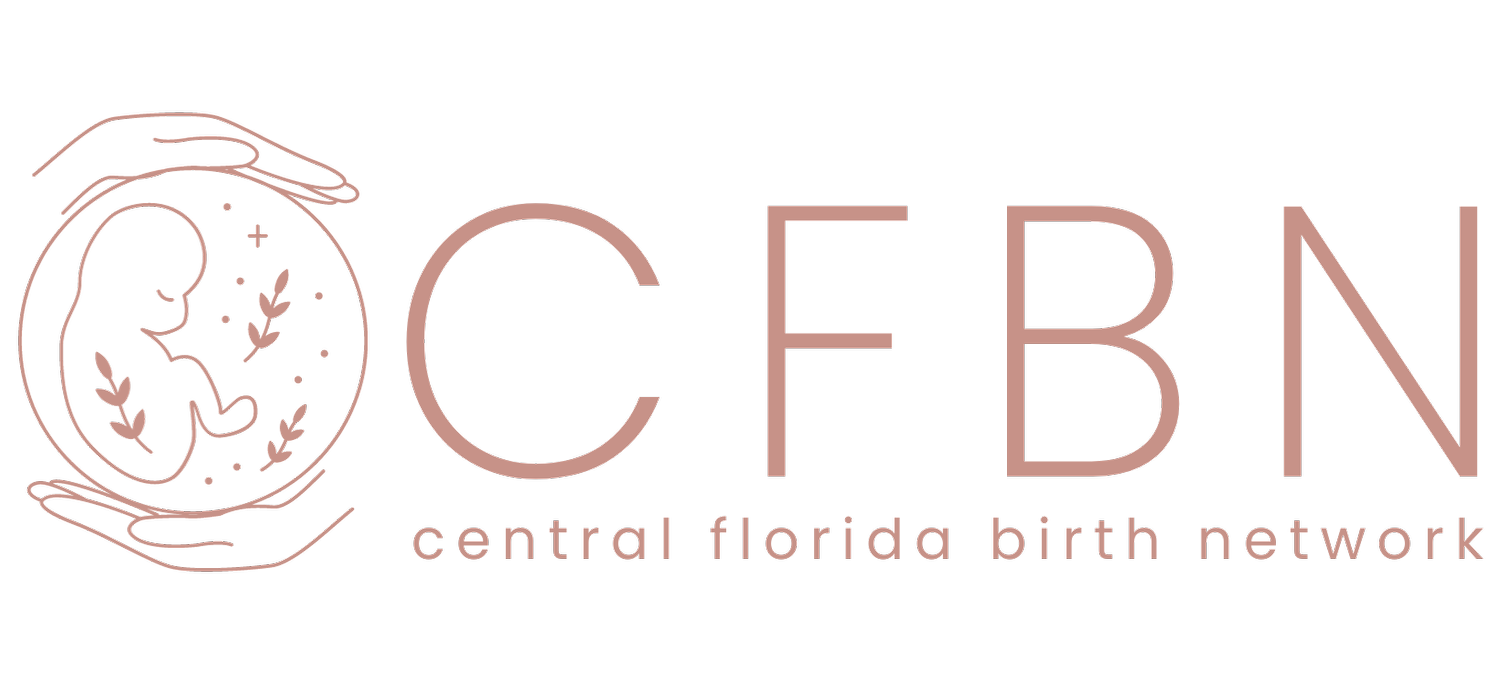Lip & Tongue Ties: How They Impact Infant Feeding
Contributing Writer(s) for CFBN: Dr. Danielle Lombardi Recine, DDS of City Beautiful Pediatric Dentistry. This content may contain opinions that may or may not be shared by all CFBN Members. The content provided on this blog is for educational purposes only and should not be construed as mental health advice; it is not intended to replace consultation with a qualified dental health professional.
Feeding your baby, whether by breast, bottle, or both, can be a deeply meaningful experience, but it’s not always easy. When an infant has a restricted frenulum (commonly referred to as a lip tie or tongue tie), feeding can become painful, stressful, and less effective for both baby and parent.
This topic is especially close to my heart. As both a pediatric dentist and a mother, I experienced firsthand the challenges of feeding difficulties with my own daughter. She struggled with latching and feeding until we addressed her lip and tongue tie. With the help of a lactation consultant, occupational therapists, and a laser frenectomy procedure, we were able to overcome those hurdles and thrive. That journey not only deepened my professional passion for this work but also strengthened my empathy for families navigating similar struggles.
We also know how frustrating it can feel to be “dismissed” or told “it’s all normal.” Parents often sense when something isn’t right, and we know how important it is to be advocates for our children. That advocacy is often what leads families to the right answers and the support they need.
At City Beautiful Pediatric Dentistry, we frequently work with families facing these challenges. A tongue tie occurs when the tissue connecting the tongue to the floor of the mouth is too short, thick, or restrictive. Similarly, a lip tie involves tight tissue between the upper lip and gumline. Both can interfere with a baby’s ability to latch, create suction, and transfer milk efficiently.
Signs parents and providers may notice include:
Difficulty latching at the breast or bottle
Prolonged or very frequent feedings
Clicking sounds during nursing
Maternal nipple pain, trauma, or recurrent plugged ducts
Inadequate weight gain in baby
Gassiness, reflux, or fussiness after feeds
Left untreated, ties can affect not only feeding but also oral development, speech, and airway health as the child grows. A noninvasive consultation at our office can help us to identify the root cause.
Our Approach to Frenectomies:
We use advanced CO₂ laser technology to perform safe, gentle frenectomies (lip and tongue tie releases). Compared to traditional methods, laser treatment offers greater precision, minimal discomfort, reduced risk of bleeding, and faster healing. Parents often report almost immediate improvement in feeding after the procedure.
Equally important, we believe in a collaborative, team-based approach. We partner closely with lactation consultants, speech and occupational therapists, chiropractors, craniosacral therapists, and other providers to ensure babies and families receive comprehensive support before, during, and after the release.
Our goal is to empower families, reduce stress around feeding, and support the long-term oral health and development of every child we care for.
For more resources, please visit City Beautiful Pediatric Dentistry.
Contributing Writer(s) for CFBN: Dr. Danielle Lombardi Recine, DDS of City Beautiful Pediatric Dentistry. This content may contain opinions that may or may not be shared by all CFBN Members. The content provided on this blog is for educational purposes only and should not be construed as mental health advice; it is not intended to replace consultation with a qualified dental health professional.
About the Author
Dr. Danielle Lombardi Recine, DDS, is a board-certified pediatric dentist and the owner of City Beautiful Pediatric Dentistry in Orlando’s SoDo District. She is passionate about providing evidence-based, compassionate care to children and families, with a special focus on oral health for children of all ages, tongue- and lip-tie release (frenectomies), and creating positive dental experiences. Dr. Danielle works collaboratively with local lactation consultants, speech-language pathologists, occupational therapists, chiropractors, craniosacral professionals, and other specialists to support optimal feeding, function, and long-term wellness of both babies and parents.


